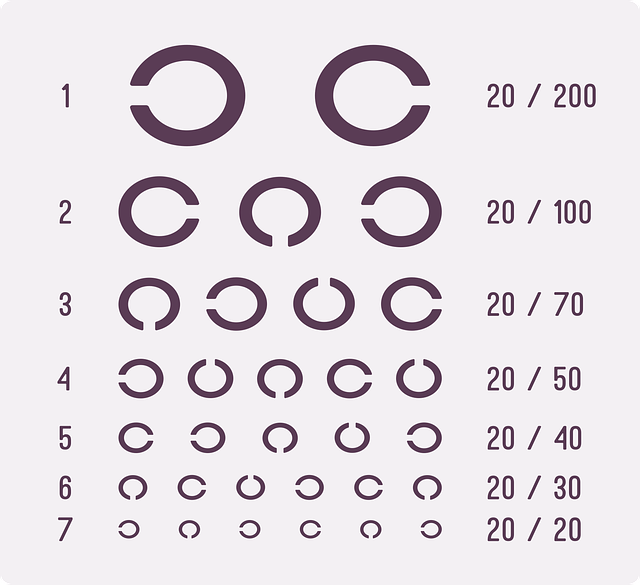Procrastination during exam preparation is tackled through personal factor awareness and tailored strategies like disabling notifications, organizing study spaces, and learning from past mistakes. Setting realistic goals, creating ideal study environments, effective time management, rewards & positive affirmations, staying motivated with accountability measures, and utilizing resources all combat procrastination. These methods enhance productivity, reduce anxiety, boost understanding, and prepare students for exam success.
Overcoming procrastination is key to achieving academic success, especially during exam preparation. This article provides a comprehensive guide to help students conquer their study session delays. We explore effective strategies such as identifying and managing triggers, setting realistic goals, and creating an inspiring study environment. Learn how time management techniques, rewards, and accountability can transform your study routine. By implementing these tips, you’ll be well-prepared, motivated, and ready to ace your exams without procrastination holding you back.
- Identify Triggers and Develop Coping Strategies
- Set Realistic Goals and Break Tasks Down
- Create an Optimal Study Environment
- Utilize Time Management Techniques
- Incorporate Rewards and Positive Affirmations
- Stay Motivated Through Accountability Measures
Identify Triggers and Develop Coping Strategies

Procrastination often stems from specific triggers that vary from person to person. Identifying these triggers is the first step towards overcoming it. Common triggers during study sessions include social media notifications, a cluttered workspace, or even fear of failure. Once recognized, individuals can develop tailored coping strategies. For instance, turning off notifications or using website-blocking apps can reduce distractions caused by online platforms. Creating a clean and organized study space can also significantly enhance focus.
Furthermore, learning from past mistakes is a powerful tool. Students should remember that fair assessment practices aim to evaluate their knowledge and understanding, not their ability to procrastinate. Implementing time blocking for maximum focus is another effective strategy. By segmenting study periods into specific blocks of time dedicated to focused work, students can improve their productivity and make significant progress towards exam preparation without the hindrance of procrastination. For personalized guidance, give us a call at Critical Thinking in Exams.
Set Realistic Goals and Break Tasks Down

Setting realistic goals is a powerful tool to overcome procrastination during study sessions, especially when preparing for exams. Instead of feeling overwhelmed by a large task, break it down into smaller, manageable chunks. For instance, instead of aiming to memorize an entire textbook overnight, set a goal to cover one chapter per day or focus on key concepts and definitions. This strategy not only makes the process less daunting but also ensures steady progress towards your academic goals.
By breaking tasks into smaller parts, you can implement effective memorization techniques for retention, such as flashcards or summarizing notes. Additionally, addressing each step systematically reduces anxiety, which might hinder performance during exams or even public speaking for academic presentations. Remember, a structured approach to studying not only enhances your understanding but also builds confidence, making it easier to tackle challenges head-on. Find us at cheating prevention methods for more tips on staying focused and engaged during study sessions.
Create an Optimal Study Environment

Creating an Optimal Study Environment is key to overcoming procrastination during exam preparation. Your study space should be dedicated, quiet, and free from distractions. A well-organized desk with all your necessary materials can significantly reduce the mental effort required to focus. Natural light and proper ventilation not only make the room more pleasant but also enhance cognitive function, which is crucial when diving into complex topics or practicing public speaking for exams.
In addition to physical comfort, consider incorporating elements that cater to different learning styles. Active learning strategies, like color-coding notes or creating mind maps, can engage visual and kinesthetic learners. Remember, the goal is to find a setup that aligns with your preferences and promotes concentration. Visit us at Active Learning Strategies to discover more tips tailored to overcoming test anxiety and improving exam grading criteria.
Utilize Time Management Techniques

Procrastination can be a significant hurdle when preparing for exams, but effective time management techniques can help overcome this challenge. One powerful strategy is to break down your study sessions into manageable chunks. Create a structured schedule, allocate specific time slots for different subjects or topics, and set realistic goals for each session. This approach ensures you stay focused and makes it easier to track your progress.
Additionally, utilizing peer tutoring techniques can be beneficial. Collaborating with classmates allows you to clarify concepts, practice problem-solving together, and offer mutual support. When preparing for an exam, understanding the underlying principles and being able to apply them is key. Engaging in discussions and comparing notes can reinforce your learning and reduce the tendency to delay studying. Remember, effective time management involves finding a balance between structured planning and flexible learning, which will ultimately contribute to better performance on exams and help you manage test anxiety.
Incorporate Rewards and Positive Affirmations

Incorporating rewards and positive affirmations into your study routine can be a powerful tool to combat procrastination, especially when preparing for exams. When you set specific, achievable goals, reward yourself with activities or treats that motivate you. This reinforcement helps train your brain to associate hard work and focus with enjoyable outcomes, making it easier to stay on task during study sessions. For instance, after completing a challenging chapter, allow yourself a short break to indulge in a favorite snack or engage in some leisure reading—a reward that can enhance your overall learning experience.
Positive affirmations, spoken or written, are another effective strategy. Remind yourself of your capabilities and past successes with statements like, “I am capable of understanding this material,” or “My hard work will pay off on the exam.” These encouraging words can help dispel negative thoughts and doubts that often fuel procrastination. By integrating such affirmations into your study sessions, you may find it easier to identify critical information and retain key concepts—aspects vital for examinations in different fields. Moreover, regular physical activity, when incorporated into your academic schedule, has been shown to boost focus and memory, making it a beneficial addition to any study plan. Visit us at examinations in different fields anytime for more tailored strategies to enhance your learning journey.
Stay Motivated Through Accountability Measures

Staying motivated during study sessions is essential for overcoming procrastination, especially when preparing for exams. Implementing accountability measures can significantly help students stay on track. One effective method is to set clear and achievable goals with specific deadlines. Breaking down tasks into smaller milestones allows for a sense of progress and accomplishment, encouraging consistent study habits. Regularly reviewing your exam proctoring guidelines and understanding the expectations can also serve as a motivator. Visual aids like planners or digital tools that track time and tasks can make studying more engaging.
Additionally, rewarding yourself after completing important milestones can enhance motivation. Consider using resources like answer key analysis to evaluate your preparation and identify areas for improvement. Remember, maintaining focus and discipline is key to successful study sessions, ensuring you’re well-prepared for the exam without unnecessary delays.
Overcoming procrastination is a journey that requires consistent effort and strategic planning. By identifying your triggers, setting realistic goals, and creating an optimized study space, you can take significant steps towards achieving academic success. Incorporating time management techniques, rewards, and positive affirmations ensures a balanced approach to studying. Remember, staying motivated through accountability measures is key to crushing your exams and reaching your full potential.

Leave a Reply